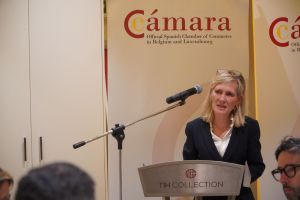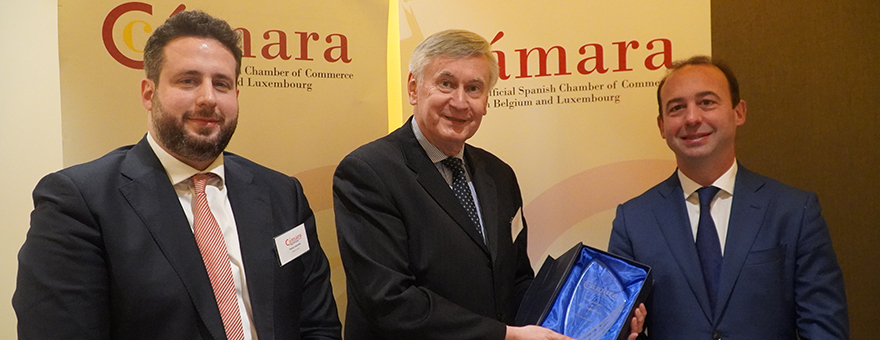Ben Smulders offers insights on how to reconcile State Aid with industrial policy
On Monday 11 March, the Official Spanish Chamber of Commerce in Belgium and Luxembourg held a new lunch-debate in the framework of its “Business Circle” forum, in which Ben Smulders, Deputy Director General for State Aid Policy at the Directorate General for Competition, spoke on “Reconciling industrial policy and competition policy: Next Gen, IPCEIs and beyond”.
The President of the Chamber, Pablo López-Álvarez, opened the event by highlighting the speaker’s extensive professional career and introducing the topic under discussion, stressing the importance for institutions to strike the right balance between industrial and competition policies.
to strike the right balance between industrial and competition policies.
Next, Lena Sandberg, partner at Gibson Dunn, sponsor of the event, gave the company’s perspective on Important Projects of Common European Interest (IPCEIs), strategic projects in different sectors that require joint investments from public authorities and industries in different EU countries.
As Sandberg recalled, eight IPCEIs were approved in the 2020-2024 period, a number that for the representative of Gibson Dunn “is not enough”. She questioned the current requirements for a project to acquire such a designation and said that these rules “may not be useful when designing IPCEIs”.
The role of State Aid
Ben Smulders then contextualised the current paradigm of state aid control in the wake of the successive crises that have damaged the economies of EU countries in recent years. “In the last 20 years, state aid has increased,” said Smulders, claiming that the amount of state aid is currently close to “1% of the EU’s Gross Domestic Product”.
 In this context, the EU’s focus is now on anchoring a growth strategy based on green and digital technologies. To this end, it is essential that the EU institutions strike a balance in providing support to Member States. “Conceptually, there is no inherent conflict between state aid and industrial policy,” he explained.
In this context, the EU’s focus is now on anchoring a growth strategy based on green and digital technologies. To this end, it is essential that the EU institutions strike a balance in providing support to Member States. “Conceptually, there is no inherent conflict between state aid and industrial policy,” he explained.
Smulders also said that it is necessary to “choose the right aid policy to address each specific market failure” so that “resources are used as efficiently as possible”. The role of State Aid, in that sense, should be to leverage investments in cutting-edge technologies or sectors that cannot be covered by private industry alone.
After the presentation, there was a Q&A session in which topics such as whether there are more subsidies foreseen in the renewable energy sector were raised. The Chamber would like to thank all the participants for making the event another success, as well as Bodegas Virgen de la Asunción for sponsoring the wine.






